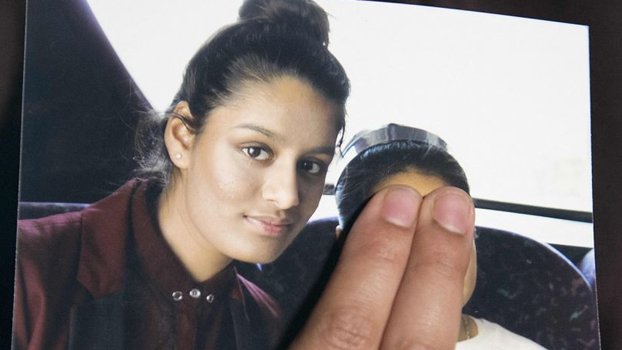‘ISIS brides’ open up in Syria camp documentary at SXSW festival

"Okay, um... My name's Shamima. I'm from the UK. I'm 19." Spoken with a nervous laugh, the introduction to a room full of women and restless babies could be the start of any young mothers' support group, reports AFP from London.
But the speaker is Shamima Begum, the teenage "ISIS bride" who left Britain for Syria in 2015 to join the Islamic State in Iraq and Syria (ISIS) group, and whose desire to return sparked a right-wing press frenzy that saw her stripped of her citizenship.
The footage is captured in The Return: Life After ISIS, a documentary premiering on Wednesday at the online Texas-based South By Southwest (SXSW) festival.
Spanish director Alba Sotorra got rare, extensive access to Begum and other Western women over several months in Syria's Kurdish-run Roj camp, where they remain following the so-called caliphate's collapse in 2019.
"I would say to the people in the UK, give me a second chance because I was still young when I left," Begum tells the filmmakers.
"I just want them to put aside everything they've heard about me in the media," she adds.
Begum left her London home aged just 15 to travel to Syria with two school friends, and married an ISIS fighter.
She was "found" by British journalists, heavily pregnant at another Syrian camp, in February 2019, and her apparent lack of remorse in initial interviews drew outrage.
But Begum and fellow Westerners including United States-born Hoda Muthana strike a very different and apologetic tone in Sotorra's film.
The documentary follows "workshop" sessions in which the women write letters to their younger selves expressing regret about their departures for Syria, and plant a tree to remember their loved ones.
"It was known that Syria was a war zone and I still travelled into it with my own children - now how I did this, I really don't know, looking back," says one Western woman.
Begum recalls feeling like an "outsider" in London who wanted to "help the Syrians", but claims on arrival she quickly realised ISIS were "trapping people" to boost the so-called caliphate's numbers and "look good for the (propaganda) videos".
Sotorra, the director, gained camp access thanks to Kurdish fighters she had followed in Syria for her previous film.
She set out to document the Kurdish women's sacrifices in running a camp filled with their former enemies' wives and children, but soon pivoted to the Western women.
"I will never be able to understand how a woman from the West can take this decision of leaving everything behind to join a group that is committing the atrocities that ISIS is committing," she told AFP.
"I do understand now how you can make a mistake."



